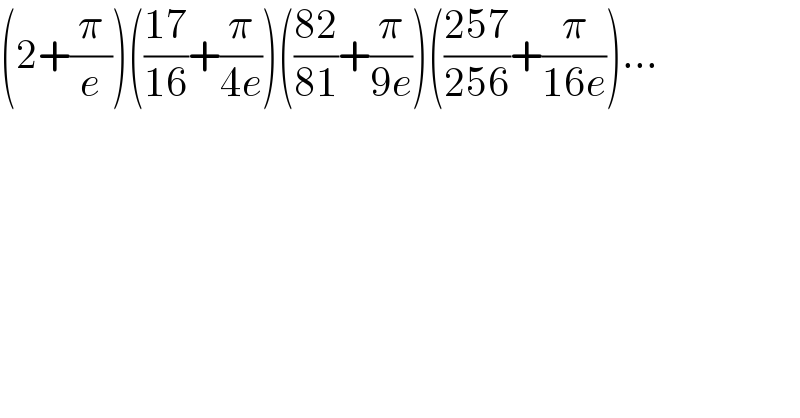Question Number 133988 by Dwaipayan Shikari last updated on 26/Feb/21

$$\left(\mathrm{2}+\frac{\pi}{{e}}\right)\left(\frac{\mathrm{17}}{\mathrm{16}}+\frac{\pi}{\mathrm{4}{e}}\right)\left(\frac{\mathrm{82}}{\mathrm{81}}+\frac{\pi}{\mathrm{9}{e}}\right)\left(\frac{\mathrm{257}}{\mathrm{256}}+\frac{\pi}{\mathrm{16}{e}}\right)… \\ $$
Commented by Olaf last updated on 26/Feb/21

$$\mathrm{P}\:=\:\underset{{n}=\mathrm{1}} {\overset{\infty} {\prod}}\left(\frac{?+\mathrm{1}}{?}+\frac{\pi}{{n}^{\mathrm{2}} {e}}\right) \\ $$$$…{I}\:{can}'{t}\:{find}\:{the}\:{sequence}… \\ $$$$…{not}\:{enough}\:{data}… \\ $$
Commented by Dwaipayan Shikari last updated on 26/Feb/21

$$\underset{{n}=\mathrm{1}} {\overset{\infty} {\prod}}\left(\mathrm{1}+\frac{\mathrm{1}}{{n}^{\mathrm{4}} }+\frac{\pi}{{en}^{\mathrm{2}} }\right).\:\:{Sorry}\:{i}\:{have}\:{edited}\: \\ $$
